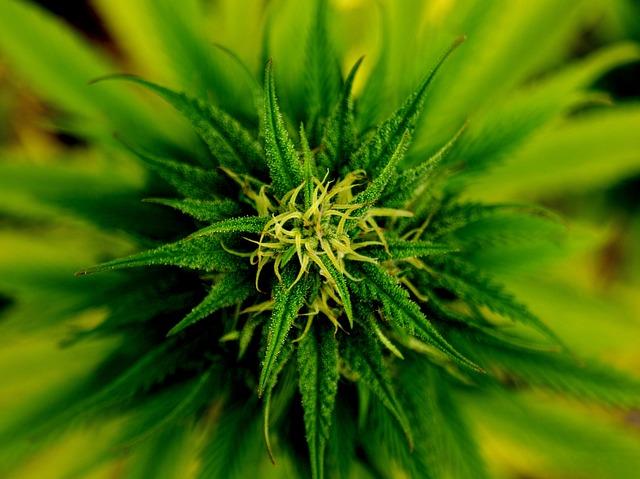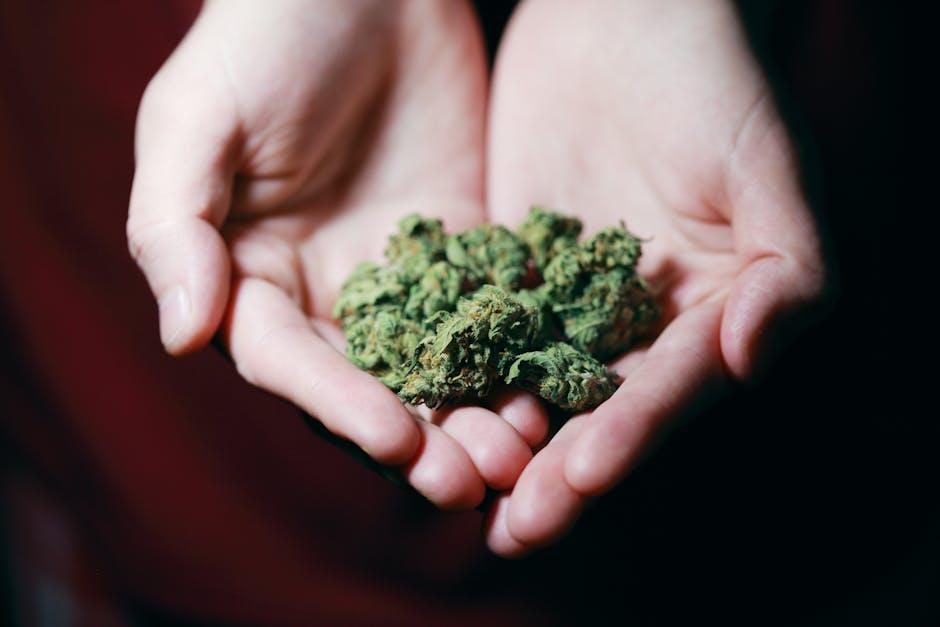Exploring the realm of medicinal marijuana unveils a myriad of benefits, but what about the lesser-discussed topic of marijuana side effects on medical use? Delving into this fascinating yet controversial area sheds light on the dual nature of this plant as both a healing agent and a bearer of potential drawbacks. Let’s embark on a journey to uncover the lesser-known side effects of using marijuana for medical purposes, navigating the curious intersection of relief and repercussions.
Table of Contents
- Understanding the Potential Medical Side Effects of Marijuana
- Exploring the Impact of Marijuana on Physical Health
- Navigating the Psychological Effects of Marijuana Use
- Addressing Long-Term Risks and Considerations
- Recommendations for Managing Marijuana Side Effects
- Q&A
- To Conclude
Understanding the Potential Medical Side Effects of Marijuana
In the realm of medical cannabis, it’s crucial to delve into the potential side effects that marijuana can bring about. Understanding the nuances of how this powerful plant interacts with our bodies is key to making informed decisions. While many people are drawn to marijuana for its therapeutic benefits, it’s essential to be aware of the possible medical side effects that may arise.Physical Effects:
- Dry mouth (also known as cottonmouth).
- Increased heart rate.
- Bloodshot eyes.
- Reduced coordination and reaction time.
Psychological Effects:
- Heightened sensory perception.
- Altered sense of time.
- Impaired memory.
- Paranoia or anxiety in some individuals.
Long-Term Effects:
- Potential impact on brain development in adolescents.
- Risk of addiction, although lower than with other substances.
- Respiratory issues from smoking.
- Possible negative effects on mental health for vulnerable individuals.
When considering the use of marijuana for medical purposes, it’s essential to consult with healthcare professionals and weigh the potential benefits against the risks. By being well-informed about the medical side effects associated with marijuana, individuals can make educated choices that align with their well-being and health goals.

Exploring the Impact of Marijuana on Physical Health
When it comes to the discussion of marijuana and its effects on physical health, there are various aspects to consider. One notable impact is on respiratory health, as smoking marijuana can irritate the lungs similarly to tobacco smoke, potentially leading to symptoms like chronic cough or bronchitis.
Additionally, marijuana use has been linked to changes in brain function and structure, particularly in areas related to memory, attention, and decision-making. Long-term heavy use may also increase the risk of mental health issues in some individuals.
| Impact | Details |
| Respiratory Health | Irritation to lungs, possible cough or bronchitis |
| Brain Function | Affects memory, attention, and decision-making |
While some research suggests potential medicinal benefits of marijuana, including pain management and appetite stimulation, it’s essential to weigh these against the potential risks and side effects, especially in vulnerable populations such as adolescents or pregnant individuals.


Navigating the Psychological Effects of Marijuana Use
It’s essential to be aware of the various psychological effects that marijuana use can have on individuals. **One common effect is altered perception**, which may lead to distortions in time, sensory perception, and even cause mild hallucinations in some users. **Additionally, marijuana can impact cognitive functions**, affecting memory, concentration, and overall cognitive performance. Being mindful of these effects can help individuals make informed decisions about their marijuana usage.Another significant psychological effect of marijuana is the potential for increased anxiety or paranoia. Some users may experience heightened levels of anxiety, nervousness, or even paranoia when under the influence of marijuana. It’s crucial to recognize these potential reactions and monitor one’s mental state while using marijuana to ensure a positive experience.
Furthermore, marijuana can also influence mood and emotions. While some users may feel relaxed, euphoric, or uplifted, others may experience emotional swings, increased sensitivity, or even feelings of lethargy. Understanding how marijuana impacts one’s emotions can help individuals better manage their mental well-being while using the substance. By acknowledging and navigating these psychological effects, individuals can engage in responsible marijuana use while prioritizing their mental health.

Addressing Long-Term Risks and Considerations
Sure, here is the content for the “” section:When considering the use of marijuana for medical purposes, it’s crucial to be aware of potential long-term risks and factors to keep in mind. While marijuana can offer various therapeutic benefits, it’s essential to understand the possible side effects that may arise over time.
**Some long-term considerations to take into account when using marijuana for medicinal reasons include:**
- Dependency: Regular use of marijuana can lead to dependency issues for some individuals.
- Cognitive Effects: Prolonged use may impact cognitive functions such as memory and concentration.
Moreover, research suggests that long-term marijuana use could be linked to an increased risk of certain health conditions. While the medical benefits are significant, staying informed about these potential risks is crucial for making informed decisions regarding marijuana use for medical purposes.
| Health Risk | Likelihood |
|---|---|
| Respiratory Issues | Medium |
| Psychological Dependence | High |
This content provides an informative overview of long-term risks and considerations associated with using marijuana for medical reasons.

Recommendations for Managing Marijuana Side Effects
Managing marijuana side effects effectively can greatly enhance your cannabis experience. Here are some tips to help you navigate any unwanted effects:When dealing with dry mouth, also known as cottonmouth, staying hydrated is key. Drinking plenty of water throughout your marijuana consumption can alleviate this common side effect.
If you experience paranoia or anxiety after using marijuana, incorporating relaxation techniques such as deep breathing exercises or meditation can help calm your mind and body.
For those struggling with increased appetite or “munchies,” having healthy snacks readily available can satisfy cravings without compromising your wellness. Opt for fruits, nuts, or veggies to curb the urge to overindulge.
Q&A
**Q&A: Exploring Marijuana Side Effects and Medical Implications**Q: What are some common side effects of marijuana use?
A: Common side effects of marijuana use may include dry mouth, increased heart rate, impaired memory, and altered perception of time.
Q: Is marijuana addictive?
A: While marijuana addiction is less common compared to other substances, it is possible for some individuals to develop a dependence on marijuana.
Q: How does marijuana impact mental health?
A: Marijuana can have varying effects on mental health, with some individuals experiencing anxiety, paranoia, or cognitive impairment, especially with high doses or long-term use.
Q: Can marijuana interact with other medications?
A: Yes, marijuana can interact with other medications, potentially leading to adverse effects or altering the effectiveness of certain drugs. It is essential to consult with a healthcare provider before combining marijuana with other medications.
Q: Are there potential medical benefits of using marijuana?
A: Marijuana has been studied for its potential medical benefits, such as pain management, appetite stimulation, and relief of symptoms associated with certain medical conditions like cancer, multiple sclerosis, and epilepsy.
Q: What should individuals consider before using marijuana for medical purposes?
A: Before using marijuana for medical purposes, individuals should consult with a healthcare provider to discuss potential benefits, risks, proper dosing, and legal implications based on their specific medical conditions and overall health status.
Q: Is it safe to drive or operate machinery under the influence of marijuana?
A: Driving or operating machinery under the influence of marijuana can impair cognitive and motor functions, leading to safety risks. It is recommended to avoid driving or engaging in activities that require full attention while under the influence of marijuana.





0 Comments